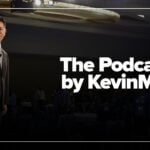Medicine demands precision. However, we overlook one of its most critical variables: physician cognitive load. As a medical student, I see both sides: how deeply patients trust their doctors, and how invisible that mental toll often is. Each day, doctors are pressured to make high-stakes decisions while managing patient care and mental strain. As a field, we track vital signs but fail to measure cognitive fatigue.
Burnout is peaking at crisis levels. According to the American Medical Association, over 45 percent of physicians experience burnout, and research increasingly links cognitive fatigue to medical errors. Burnout is not just exhaustion; it is a state where doctors become overwhelmed by tasks they were once able to handle. Studies show physicians experiencing burnout exhibit decreased neurophysiological responses to stimuli: Their ability to process information and react appropriately is impaired. This issue extends far beyond physician well-being; it directly impacts patient safety. Our current approach to physician wellness is reactive, addressing symptoms rather than targeting root causes. It is time for a paradigm shift: Hospitals must integrate cognitive load monitoring to provide real-time, objective data on physician fatigue.
The science behind cognitive load
Cognitive load refers to the amount of mental effort exerted while using working memory. In high-pressure environments, excessive cognitive load impairs decision-making, slows reaction time, and increases the likelihood of human error. Studies confirm doctors under extreme cognitive strain exhibit diminished diagnostic accuracy and are more prone to risky decision-making. Despite these findings, no standardized tool exists to assess when a physician is operating under unsustainable cognitive load.
Medical students and residents face an especially high risk due to training in chaotic hospital environments, making it harder to manage overload. Research suggests individuals who develop stronger metacognitive skills, such as the ability to regulate their own thinking, can manage cognitive load more effectively. However, only a few programs teach physicians how to do this.
A data-driven solution
Hospitals must treat cognitive load as they would any other vital sign. Research suggests real-time physiological measures, such as heart rate variability (HRV) and skin conductance, could provide insights into a physician’s cognitive state. In surgical fields, HRV has already been used to assess intraoperative stress, revealing excessive load leads to impaired technical skills and worse patient outcomes. Other studies suggest reaction-time tasks or low-cost biometric sensors could help identify when physicians are approaching cognitive overload, supplementing other interpersonal and nonverbal signs (posture, eye movements). This allows physicians to adjust their workload before it becomes dangerous.
Some may argue physicians should “push through” fatigue, as they have for generations. However, we no longer tolerate 36-hour shifts in the hospital without sleep. We recognize the need for mental health resources. Cognitive load tracking is not an indulgence. It is the logical next step in modernizing physician wellness and protecting patient safety.
Institutional change begins now.
Hospitals must lead the charge in implementing cognitive load monitoring. Residency programs, where young physicians are especially vulnerable, should be early adopters. Incorporating cognitive load assessments into wellness check-ins and clinical decision-support systems would allow a shift of focus from reactive intervention to proactive protection. If we can integrate cognitive load tracking into our hospital systems, it could set a societal precedent for data-driven physician wellness.
The future of medicine
The medical field champions innovation. However, we have failed to apply this mindset to protecting our workplace. Physicians are not machines. They cannot operate at peak performance without systems in place to manage cognitive strain.
This is not a luxury but a necessity. If we are serious about patient safety and physician longevity, then cognitive load tracking must become a standard practice in hospital systems. The technology is available. The need is urgent. The question now is whether health care institutions will act before the next crisis forces their hand.
Hiba Fatima Hamid is a medical student.




















![AI censorship threatens the lifeline of caregiver support [PODCAST]](https://kevinmd.com/wp-content/uploads/Design-2-190x100.jpg)

